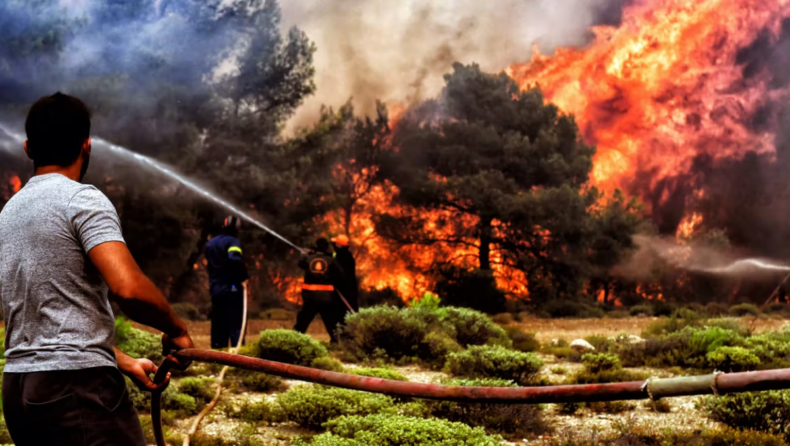The heatwave in Europe which has been ongoing since the month of July has turned deadly with forest fires burning across Greece, Spain and Portugal. Southern Europe has been the most affected region and scientists and experts have blamed climate change for magnanimity of the heatwave.

What is Causing the Heatwave?
Scientists have attributed a number of factors to the rising temperatures of Europe. Climate change, coupled with these factors has exacerbated the condition in the region.
The starting point for the current condition was the arrival of the anticyclone, Cerberus. Anti-cyclones are high pressure systems which create stable and dry conditions of the ground due to the sinking of warm air.
Such anti-cyclonic conditions are formed in the Saharan region due to sinking of warm upper atmospheric circulations, whose convergence creates high pressure conditions in the desert. However, according to scientists, these areas are now expanding due to increasing change in climate, as a result warming of the oceans and the seas which as a result of specific heating then cause additional rise in temperatures. The southwestern westerlies further carry the warm winds from African regions towards Europe.
Furthermore, disturbance in the upper atmosphere has caused the polar jet stream to meander which has trapped the subsiding warm winds, creating heat domes.
In addition to such geographical factors, rising industrialisation and mining activities in the region have further contributed towards the rising heat in the region.
Such weather anomalies, according to scientists will become more frequent in the coming years as global warming which will induce changes in atmospheric circulations, the result of which will be a change in weather pattern across the world.
Impact of the Heatwave

The impact of the heatwave in Europe has been deadly. Many have died in Spain and Italy as a result of heat strokes. Research has indicated that such drastic events will also have an adverse impact on economic growth by lowering it up to 0.5%.
The wildfires in Greece has resulted in 20 deaths and excessive damage to flora and fauna of the region. Hospitals have been evacuated with ferries being converted into makeshift hospitals. Electricity and water supply has been disrupted in the region.
In addition, the heatwave is expected to have a long term impact on European economy with economic losses to its tourism industry, agricultural losses and a rise in health problems.
Lessons from Europe
An article in The Hindu dated 22 August 2024 talked about the recent decision by the British Government for allowing off shore oil drilling in the North Sea. Such decisions by neighbouring nations amidst such tragic conditions, with temperatures surpassing 40 degree Celsius is reflective of the negligence by countries towards the environment. Agreements on paper then act as grounds of leverage for nations who continue to be ignorant of such outbursts of nature.
As the world gets closer towards its tipping point, there is an urgent need for taking efficient and honest steps towards countering climate change or else the end of the human civilization will become a reality.













